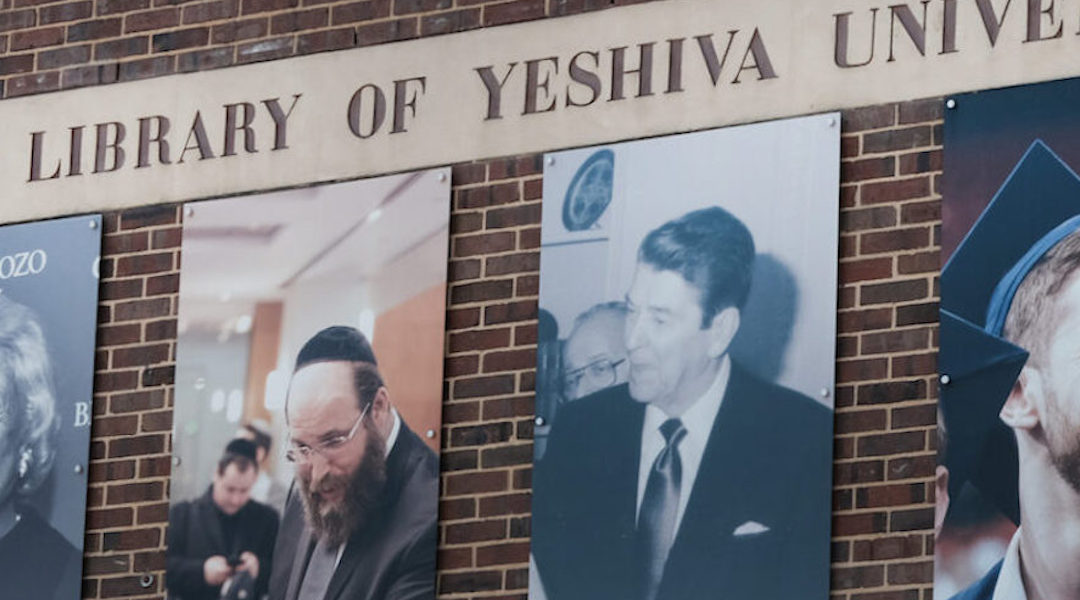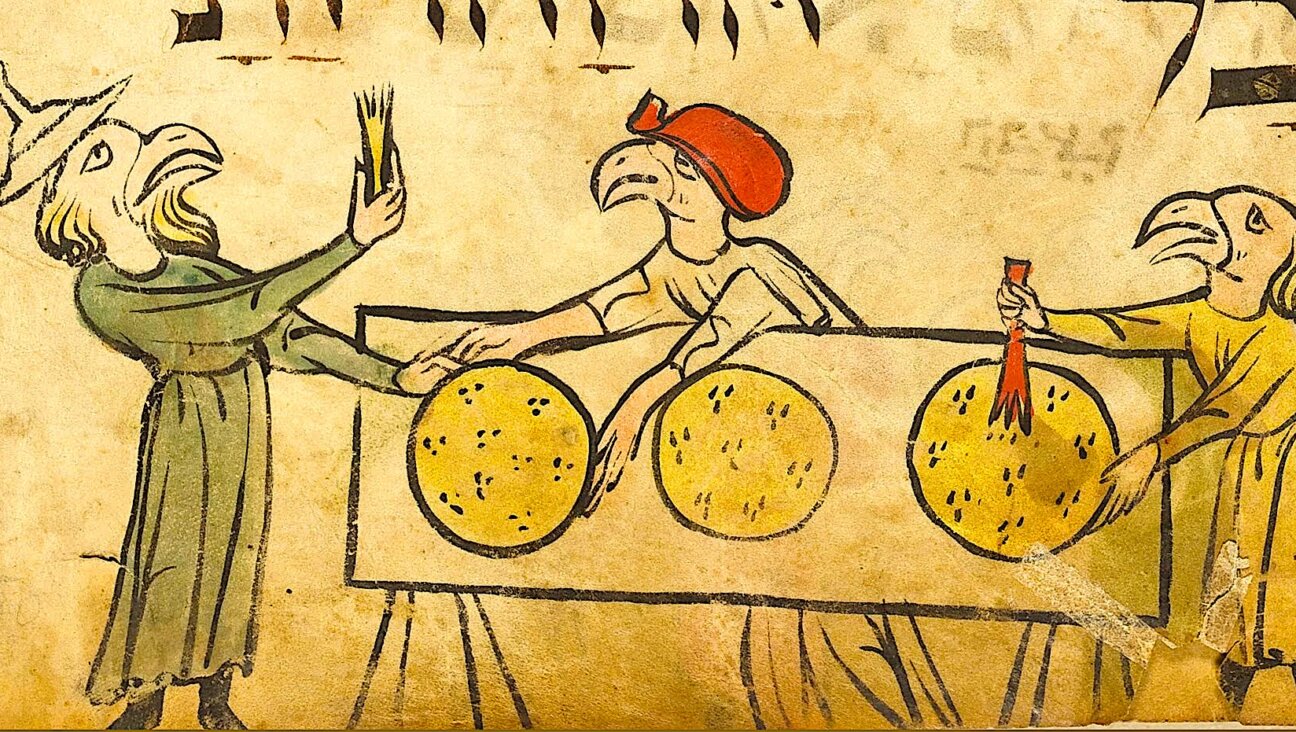Amid Arab-Israeli violence, coexistence activists fight to change the narrative

Jewish and Arab mayors and heads of municipalities join together to promote coexistence. Courtesy of Shir Nosatzki
Barely a year ago, Shir Nosatzki, gushed with pride over the popularity of a video she had helped produce as co-founder of “Have You Seen the Horizon Lately?” — an NGO devoted to promoting Jewish-Arab coexistence in Israel.
The video, which went viral and garnered over 2 million views, highlighted the heroic efforts of Arab Israeli doctors and medical professionals to quell the coronavirus pandemic.
In this second week of the conflict between Israel and Hamas, such expressions of Arab-Jewish cooperation and friendship seem to some like wishful thinking.
It’s not just the exchange of thousands of rockets that has resulted in more than two hundred deaths in Gaza, as well as a dozen in Israel. Unlike previous conflicts, this month’s has been marked by violent incidents between Jews and Arabs inside Israel, including the lynching of an Arab man by a Jewish mob in Bat Yam, and the torching of synagogues by Arab rioters in Lod.
But activists like Nosatzki won’t be shaken from their belief that Arabs and Jews can be good neighbors, and they are determined to prove it to a world saturated with images and news accounts that seem to make the case for a hate-filled future.
To that end, “Have You Seen the Horizon Lately?” mobilized more than 10,000 Jews and Arabs on social media to promote an agenda of coexistence on Facebook, WhatsApp and in other internet spaces, some of which were picked precisely because they’re popular with those who embrace hate speech and promote violence.
Nosatzki’s is not the only group trying to promote the idea of an Israel shared by Jews and Arabs.
In one viral video, Israeli Jewish, Muslim, Christian and Druze religious leaders spoke up to condemn the inter-communal violence.
In another, Jewish and Arab soccer players joined together to say that they “refuse to be enemies.”
The Israeli business community has also added its voice to the call for peace.
“We, managers and senior executives from the leading companies in the economy, who rely on the cooperation of citizens, Jews and Arabs, side by side — call for an end to violence and a way to live together,” said a statement signed by dozens of Israeli business leaders.

Globes front page with a message from business leaders calling for coexistence. By Screenshot of Globes
“We Jews and Arabs men and women of the market, of society and business, want to coexist,” it reads in Hebrew.
“The truth is at the end of the day, all the Jews and Arabs who took part in the violence are a complete minority,” Nosatzki said. “At most they are thousands, but there are millions of Jews and Arabs who for the last few days have sat at home worried and afraid.”
Just a few weeks ago, she noted, the hopeful spirit of the video she helped produce on Arab Israeli health care professionals seemed to be embodied elsewhere in Israeli society: For the first time, an Arab political party seemed poised to join together with Zionist Jewish parties in a ruling coalition that would oust the government of Prime Minister Benjamin Netanyahu.
It’s imperative for Arabs and Jews to maintain that vision for coexistence, she said.
“The most dangerous thing is not if one more store will be burned or one more riot, as horrible as that is,” Nosatzki told the Forward. “The most dangerous thing is if the next day almost 10 million Jews and Arabs wake up in the morning and think the other is their enemy and doesn’t have a future here.”
The Forward is free to read, but it isn’t free to produce

I hope you appreciated this article. Before you go, I’d like to ask you to please support the Forward.
At a time when other newsrooms are closing or cutting back, the Forward has removed its paywall and invested additional resources to report on the ground from Israel and around the U.S. on the impact of the war, rising antisemitism and polarized discourse.
Readers like you make it all possible. We’ve started our Passover Fundraising Drive, and we need 1,800 readers like you to step up to support the Forward by April 21. Members of the Forward board are even matching the first 1,000 gifts, up to $70,000.
This is a great time to support independent Jewish journalism, because every dollar goes twice as far.
— Rachel Fishman Feddersen, Publisher and CEO
2X match on all Passover gifts!
Most Popular
- 1

News A Jewish Republican and Muslim Democrat are suddenly in a tight race for a special seat in Congress
- 2

Fast Forward The NCAA men’s Final Four has 3 Jewish coaches
- 3

Film & TV What Gal Gadot has said about the Israeli-Palestinian conflict
- 4

Fast Forward Cory Booker proclaims, ‘Hineni’ — I am here — 19 hours into anti-Trump Senate speech
In Case You Missed It
-

News Who would protect New York Jews better? Cuomo and Lander trade attacks on the campaign trail
-

News Rabbis revolt over LGBTQ+ club, exposing fight over queer acceptance at Yeshiva University
-

Opinion In Qatargate fiasco, Netanyahu’s ‘witch hunt’ narrative takes cues from Trump
-

Yiddish די הגדה ווי אַ לעבעדיקער דענקמאָל פֿון אַשכּנזישער פּאָעזיעThe Haggadah as a living monument to Ashkenazi poetry
אַמאָל זענען די פּייטנים, מיסטישע דיכטער־וויזיאָנערן, געווען אויבן־אָן בײַ די פֿראַנצויזישע און דײַטשישע ייִדן.
-
Shop the Forward Store
100% of profits support our journalism
Republish This Story
Please read before republishing
We’re happy to make this story available to republish for free, unless it originated with JTA, Haaretz or another publication (as indicated on the article) and as long as you follow our guidelines.
You must comply with the following:
- Credit the Forward
- Retain our pixel
- Preserve our canonical link in Google search
- Add a noindex tag in Google search
See our full guidelines for more information, and this guide for detail about canonical URLs.
To republish, copy the HTML by clicking on the yellow button to the right; it includes our tracking pixel, all paragraph styles and hyperlinks, the author byline and credit to the Forward. It does not include images; to avoid copyright violations, you must add them manually, following our guidelines. Please email us at [email protected], subject line “republish,” with any questions or to let us know what stories you’re picking up.
















